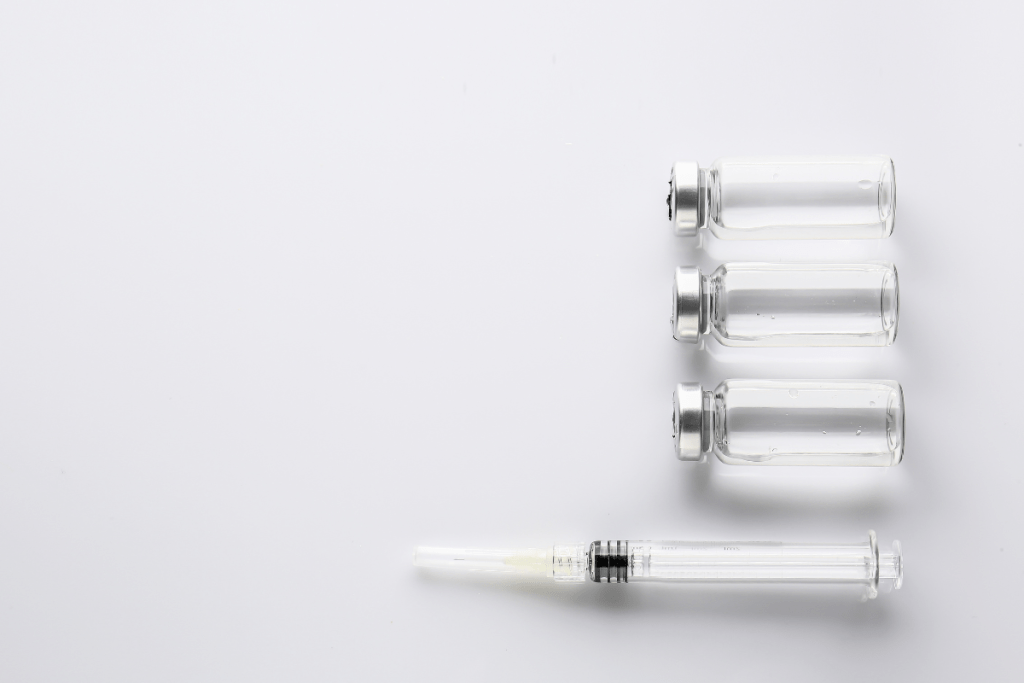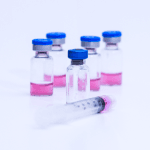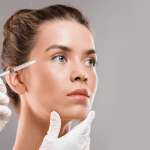In dermatology and skin care, the fight against aging and environmental damage is as critical as ever, with an emphasis on the antioxidant benefits for skin. As medical practitioners, you understand the importance of addressing intrinsic and extrinsic factors contributing to skin health. Enter antioxidants—a powerful class of compounds that play an essential function in neutralizing free radicals and mitigating oxidative stress. Antioxidants are not just buzzwords in skincare but are crucial players in maintaining a youthful complexion and preventing premature aging. So, what do antioxidants do for skin? They help protect against environmental damage, improve skin texture, and reduce the appearance of fine lines and wrinkles, making them indispensable in any effective skincare regimen.
This article delves into the science behind antioxidants, their benefits for the skin, and their application in facial skincare, equipping you with the knowledge to enhance patient care and promote a radiant, resilient complexion.
Effective Antioxidants for Radiant Facial Health
Antioxidants are critical in dermatology and skincare, offering protective benefits against environmental stressors and aging. These compounds, which include vitamins, minerals, and phytochemicals, neutralize free radicals and unstable chemicals that can harm cells. For skin health, antioxidants are essential in preventing oxidative stress, reducing inflammation, and promoting cellular repair; ultimately, this results in a younger and more resilient complexion.
The Impact of Antioxidants on Skin Health
Antioxidants provide a multitude of benefits for the skin. They help to:
| Benefit | Description |
|---|---|
| Protect against UV damage | Antioxidants like vitamin C and E absorb and mitigate the effects of harmful UV rays, reducing the risk of sunburn and long-term photodamage. |
| Reduce inflammation | By neutralizing free radicals, antioxidants help decrease inflammation and soothe irritated skin. |
| Prevent hyperpigmentation | Antioxidants can inhibit the production of melanin, helping to prevent and reduce dark spots and uneven skin tone. |
| Boost skin repair | Antioxidants support the skin’s natural repair processes, aiding in the recovery from damage and maintaining overall skin health. |
Effective Antioxidants for Facial Health
Facial skincare formulations often include antioxidants to address aging, hyperpigmentation, and acne concerns. Popular antioxidants for facial skin care include:
| Antioxidant | Benefits |
|---|---|
| Vitamin C | Known for its brightening and anti-aging properties, vitamin C helps improve skin texture and tone. |
| Vitamin E | This fat-soluble antioxidant protects cell membranes and enhances the skin’s barrier function. |
| Retinoids (Vitamin A) | Potent antioxidants that promote cell turnover and collagen production, reducing the appearance of fine lines and wrinkles. |
| Niacinamide (Vitamin B3) | Improves skin elasticity, enhances the barrier function, and evens out skin tone. |
| Green Tea Extract | Rich in polyphenols, it has anti-inflammatory and anti-carcinogenic properties, making it excellent for soothing the skin and protecting against environmental damage. |
High-Impact Antioxidants in Skincare
Incorporating antioxidants into a skincare routine can significantly enhance the skin’s health and appearance. Skincare goods such as serums, moisturizers, and sunscreens are often formulated with antioxidants for targeted benefits. Consider the skin type and specific concerns when recommending antioxidant-rich products to patients. For example, a vitamin C serum can be beneficial for brightening dull skin, while a moisturizer, green tea extract, can relieve and preserve sensitive skin. It’s also important to educate patients on the importance of consistent use and proper application to maximize the benefits of these potent ingredients.
How Natural Skin Antioxidants Prevent Damage
The skin naturally contains several antioxidants, such as superoxide dismutase, catalase, and glutathione. These endogenous antioxidants play a crucial role in protecting the skin from:
| Type of Damage | Role of Natural Antioxidants |
|---|---|
| Environmental Pollutants | Natural antioxidants help neutralize free radicals generated by exposure to pollutants such as smog, smoke, and chemicals. |
| UV Radiation | Endogenous antioxidants counteract reactive oxygen species (ROS) produced by UV exposure, reducing the risk of sunburn, photoaging, and skin cancer. |
| Intrinsic Aging | As natural antioxidant production declines with age, enhancing the skin’s antioxidant defenses can help mitigate oxidative stress and promote a youthful complexion. |
| Inflammation and Immune Response | Natural antioxidants modulate inflammatory responses and support the skin’s immune function, helping to prevent chronic conditions like acne and rosacea. |
The Role of Antioxidants in Skincare: A Focus on Cytocare
For medical practitioners, recommending treatments with antioxidant benefits can significantly improve patients’ skin health. Cytocare is an advanced skincare solution that utilizes antioxidants for skin revitalization, making it an excellent choice for patient care.
The antioxidants in Cytocare stimulate collagen synthesis, which is essential for maintaining skin firmness, reducing fine lines and wrinkles, and promoting a youthful complexion. Additionally, Cytocare neutralizes environmental stressors like UV radiation and pollution, strengthening the skin’s natural barrier and preventing future damage. Clinical studies and patient testimonials confirm Cytocare’s effectiveness in improving skin texture, tone, and overall appearance, making it a reliable option for skin regeneration treatments.
Frequently Asked Questions (FAQs)
What are the most effective antioxidants for treating specific skin conditions?
For acne, niacinamide and green tea extract are beneficial due to their anti-inflammatory properties. Vitamin C and E can help with hyperpigmentation and signs of aging. For rosacea, antioxidants like vitamin B3 (niacinamide) and polyphenols from green tea are effective in reducing inflammation and redness.
How do antioxidants compare to anti-aging ingredients, such as retinoids and peptides?
Antioxidants neutralize free radicals and prevent oxidative damage, while retinoids enhance cell turnover and stimulate collagen production. Peptides support the skin’s structural proteins and improve elasticity. Combining antioxidants with these other ingredients can offer a holistic approach to anti-aging that addresses many mechanisms of skin aging.
What is the best method for integrating antioxidants into a skincare regimen?
The integration of antioxidants into a skincare regimen should be tailored to individual patient needs. Antioxidants are applied topically in serums or creams, often in the morning, to protect against daily environmental stressors. It is important to recommend a routine that includes antioxidants alongside other treatments, such as sunscreens, to maximize their efficacy.
Are there any potential interactions or contraindications when using antioxidants with other skincare ingredients or medications?
Antioxidants are generally well-tolerated and can be combined with other skincare ingredients. However, caution should be exercised when combining antioxidants with certain acids (e.g., alpha hydroxy acids) or retinoids, which may lead to irritation. It’s essential to assess each patient’s skin sensitivity and adjust formulations accordingly.
How can the stability and efficacy of antioxidant formulations be assessed?
The stability and efficacy of antioxidant formulations can be assessed through various methods, including:
Packaging: Light and air-resistant packaging helps maintain antioxidant potency.
Testing: Stability tests and clinical trials assess the formulation’s effectiveness over time.
Ingredient Quality: High-quality, well-sourced antioxidants are crucial for ensuring maximum efficacy.





